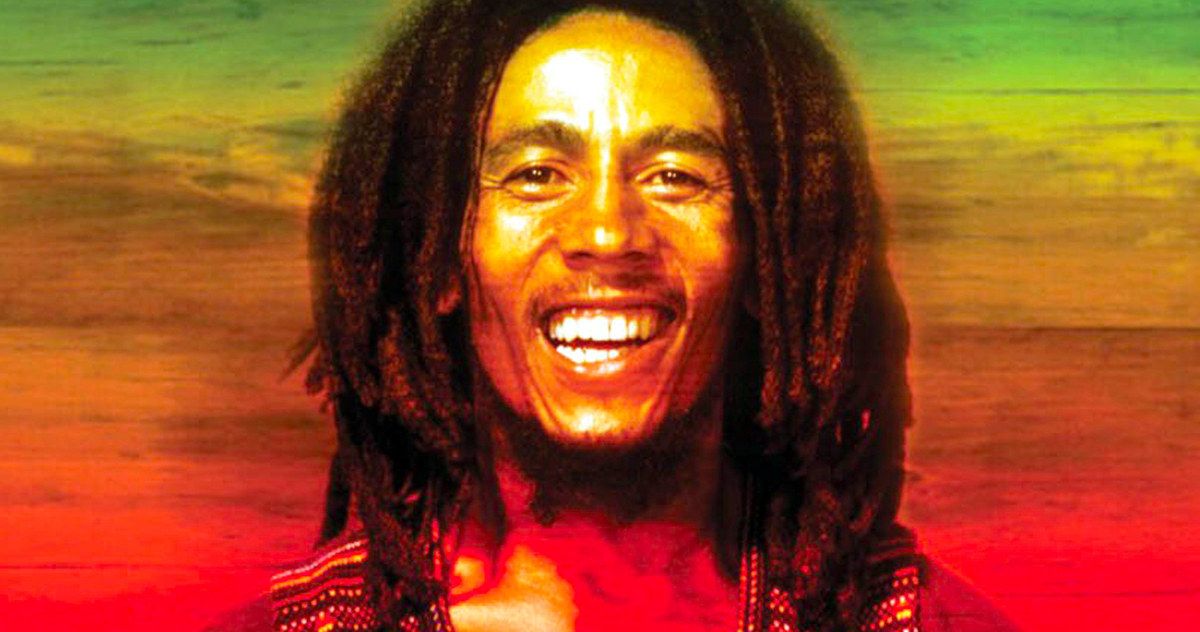Paramount Pictures is teaming up with celebrated musician Ziggy Marley to develop a biopic about his father, reggae music legend Bob Marley. No writer or director is in place at this time, and it remains to be seen what other producers Ziggy Marley will bring on board to this project. It's most definitely still in the earliest stages of development and there is no word yet on whether Paramount has planned a production schedule or possible release date quite yet, but it seems the project is in fact moving forward.
Bob Marley was born February 6, 1945 in Jamaica, to Norvall Marley, a white Jamaican who originally hailed from Sussex, England and oversaw a plantation, and Cordelia Booker, who he married at the age of 18. Marley's father being white lead to him being discriminated against in his own country, but his father passed away when he was just 10 years old after suffering a heart attack. When his mother moved her family to Trenchtown, Kingston, Jamaica, Bob met many of his future collaborators such as Peter Tosh, Neville Livingston (a.k.a. Bunny Wailer), Beverley Kelso and Junior Braithwaite.
Bob Marley released his first four songs in 1962, and he ultimately formed a group with Peter Tosh, Bunny Wailer, Beverley Kelso, Junior Braithwaite and Cherry Smith that became known as The Wailers. They released their first studio album, The Wailing Wailers in 1965, followed by Soul Rebels (1970), Soul Revolution (1971), The Best of The Wailers (1971), Catch a Fire (1973), Burnin' (1973) and Natty Dread (1974). Bob Marley and the primary members of The Wailers, Peter Tosh and Bunny Wailer, parted ways in 1974 to pursue solo careers, but Marley continued with new members of The Wailers.
It was also in 1974 that Eric Clapton recorded a cover of Marley's hit I Shot the Sherrif, and in 1975, he had his first international hit outside of the island of Jamaica with No Woman, No Cry. His follow-up album, 1976's Rastaman Vibration, cracked the Top 50 on the U.S. Soul charts, but later that year, Marley, his wife and manager Don Taylor were wounded by a gunman who opened fire in Marley's home. This prompted Marley to leave Jamaica for the first time in his life, for a two-year period of exile in the U.K. where he recorded Exodus and Kaya. In 1977 he discovered a malignant melanoma on the inside of a toenail, and despite his doctors asking him to have the toe amputated, he refused, citing religious beliefs.
Despite his illness, Marley continued to tour, and he released Uprising in 1980, but his health continued to fade. He learned later that year that the cancer had spread to his brain and throughout the rest of his body. He was flying home to Jamaica from Germany when his condition worsened and he landed in Miami and taken to the hospital for immediate medical attention. He died on May 11, 1981 at the age of 36. {http://deadline.com/2018/06/ziggy-marley-biopic-bob-marley-paramount-1202404203/|Deadline| broke hthe news on this Bob Marley biopic today.

